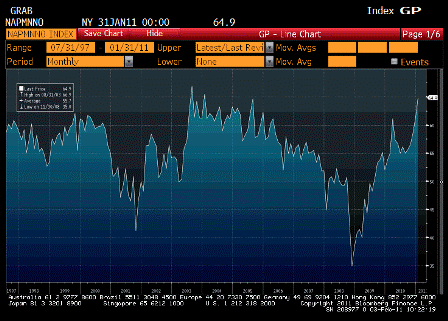It’s an agonizingly slow process, but it is starting to feel like the world is turning away from crude oil consumption.
The Saudis are the swing producer, and can set price at any level they wish.
But if they set the price ‘too high’ over time demand shifts away from them due to both conservation and substitution.
(And if they set the price too low, consumption rises to eventually use up their excess capacity.)
It’s feeling to me like they have the price high enough to both cool consumption through both conservation and substitution, as evidenced by the demand for refined products discussed below and charts I’ve posted previously.
And slowly but surely the price of crude- as well as the unattractiveness of being dependent on it and the negative connotations of burning fossil fuels in general- is driving the investment and technology for both better fuel economy and a long term switch to electric power for transportation, as well as for a shift away from fossil fuels in general.
In theory a monopolist like the Saudis might respond by dropping the price to a level that discourages/crushes the investments associated with the switch out of crude- maybe $40 per barrel. But there’s no sign of that yet, and they may not want to dip into their cash reserves to the extent needed to support a move like that.
Nor, alternatively, with what’s going on in the region, might they believe then can afford politically to apply that much austerity to their population.
Also, this is all fundamentally $US friendly, and works to offset the negative impact on the dollar from higher crude prices per se.
By Sarah Young
February 3 (Bloomberg) — Shell disappointed investors on Thursday with below-forecast fourth-quarter profit, with concerns over its refining business overshadowing a sharp rise driven by higher oil prices.
The results followed strong earnings from Chevron and Exxon Mobil, although BP, struggling to put the Gulf of Mexico oil spill behind it, fared less well.
Shell shares fell 3 percent, with analysts saying they had expected more and expressing concern over continued weakness in the Anglo-Dutch oil major’s refining business, with oil product sales rising just 5 percent year-on-year.
“Our earnings were impacted by weak refining margins, pressure on certain regional natural gas prices, and volatility in downstream marketing margins as a result of rising oil prices,” Shell said.
Arbuthnot analyst Dougie Youngson said margins would be under increased pressure if oil prices remained at around $100 a barrel for long.
Benchmark U.S. crude prices averaged about $85 per barrel in the fourth quarter, up from $76 in the fourth quarter of 2009, but have since risen to above the $100 mark.
“The global market continues to see weak demand and pricing for oil products,” Youngson said in a note.
Shell said that despite a year-on-year improvement its refining results were lower compared with the third quarter because of “increased downtime at major refining facilities.”
Shell’s earnings on a current cost of supplies (CCS) basis, jumped to $5.7 billion from $1.2 billion a year ago when it suffered heavy refining losses. But Jos Versteeg, an analyst at Theodoor Glissen, said this was still less than anticipated.
Excluding non-operating and one-off items the fourth quarter result was $4.1 billion, short of a forecast for $4.85 billion, according to a Reuters poll.
Analysts welcomed Shell’s announcement of a $0.42 dividend for the quarter and the fact it expected to maintain that level for the first quarter of 2011.
Shell’s planned capital investment of $25-$27 billion for 2011 was also well received, with Sanford Bernstein’s Oswald Clint saying capex appeared under control.
However, Arbuthnot’s Youngson said he was concerned about Shell’s focus on gas, given continued price weakness and oversupply forecasts.


